Funds needed for local LGBTQ documentary
Just as it was an uphill battle to fight the frightening AIDS epidemic in the 1980s and ‘90s, people in the Quad Cities LGBTQ community face a formidable challenge to document their story.
Dozens of gay and lesbian residents, activists and leaders of the QC Pride in Memory project gathered Sunday night for a fundraiser at the Last Picture House in Davenport to support “Our Story: Pride in Memory,” a documentary currently in production by Emmy-winning filmmakers Kelly and Tammy Rundle of Moline-based Fourth Wall Films.
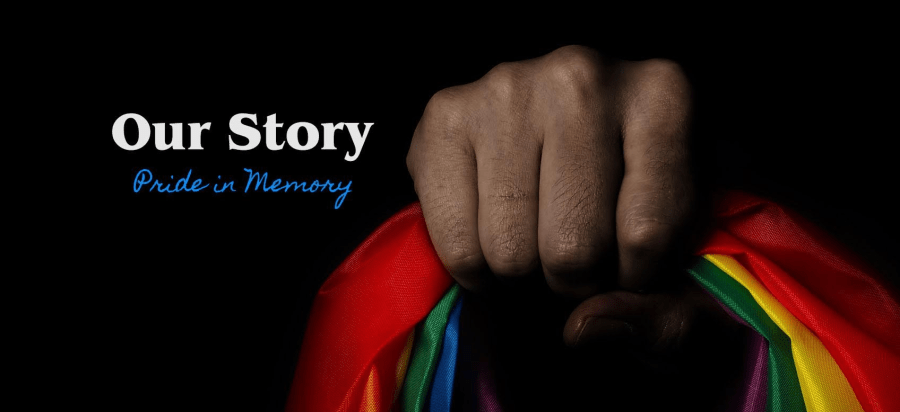
“Our Story: Pride in Memory” (working title) shines a light on the untold history of the Quad Cities’ LGBTQ+ community. From the guarded 1950s, AIDS, and gay marriage to current attempts to roll back LGBTQ+ rights, the film reveals the story of a personal and local civil rights movement.
The new documentary features the lived experiences of LGBTQ+ residents through illuminating on-camera interviews and combines them with compelling archival images and film footage to tell an inspiring story of struggle, achievement, and pride.
Rev. Rich Hendricks of Metropolitan Community Church, of the QC Pride in Memory steering committee, welcomed attendees to the movie theater where the Rundles showed a six-and-a-half minute segment of what’s been filmed so far, to give attendees a taste of what the full documentary could be.
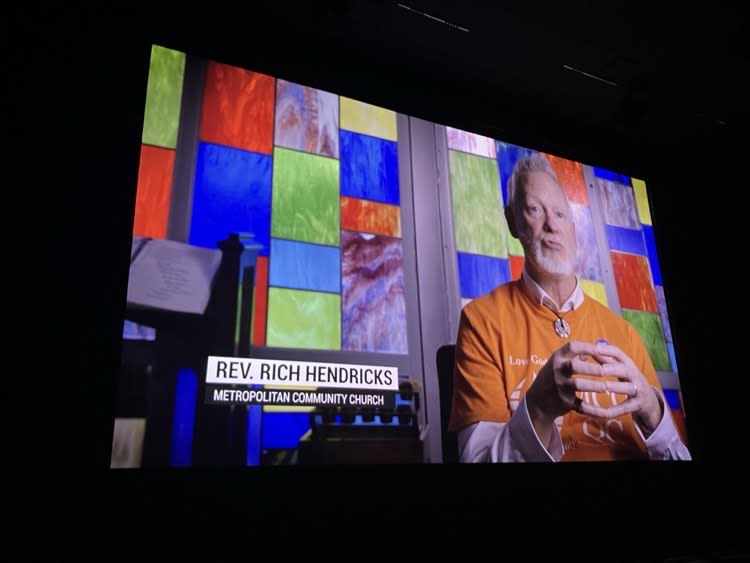
Hendricks quoted Coretta Scott King, who said: “Freedom is never really won. You earn it in every generation.”
“That’s what this is about. We fought for and earned some freedoms,” he said. “We’re still struggling to hang on to those.”
“Stories need to be told,” Hendricks said. “If we miss out, then we miss a piece of history.”
He thanked two people who are no longer with us, yet very much are part of this project – Joyce Wiley, with her husband founded Quad Citians Affirming Diversity, and Clayton Peterson, who wanted to preserve local gay and lesbian history.
“It’s about a lot more than just the documentary, that will happen with your help,” Hendricks said. “There’s a lot of stuff online and we need your help to continue – we need people to help do more interviews.”
“We are all here because of those who have gone before and blazed many trails,” he said. “Thanks to all those who are working to preserve our stories. We will continue to tell our stories.”
“As always, Tammy and I are humbled and honored when people trust us with their stories,” film director Kelly Rundle said Sunday introducing the short film clips. “This project has been no different in that sense than any other we’ve worked on. It’s a good fit for us because almost all our films are history stories that we’re telling.”
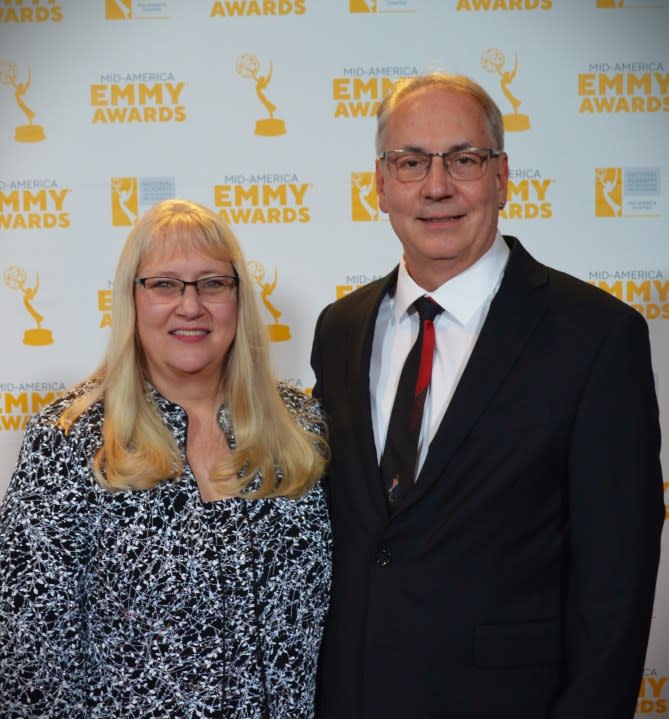
Fourth Wall focuses on Midwestern history, and this is a Quad Cities-specific story.
“Also, it has a civil rights and social justice theme. That is also consistent with our other work and our own interests and values,” Kelly said. “Each of our projects has a family or community, around each of those film projects. In a way, we’re inviting you to become part of that community in one way or another.”
“Also, we hope that it will cause you to part with some cash,” Kelly said. “We’re excited to share it with you – a little scared, a little terrified, that’s the way it always is.”
Reflecting local history
“Our Story: Pride in Memory” reflects several QC stories, including interviews with Jane Duax, owner of Women’s Works bookstore; Jack Wiley, husband of Joyce Wiley, counselor Larry Best, and Pride in Memory committee member Sara Meyer.
“I’m amazed that we evolved the systems over time that allowed us to take care of people,” Louis Katz, M.D., infectious disease specialist, says in the film. “At the time, we were trying to keep our head above water.”
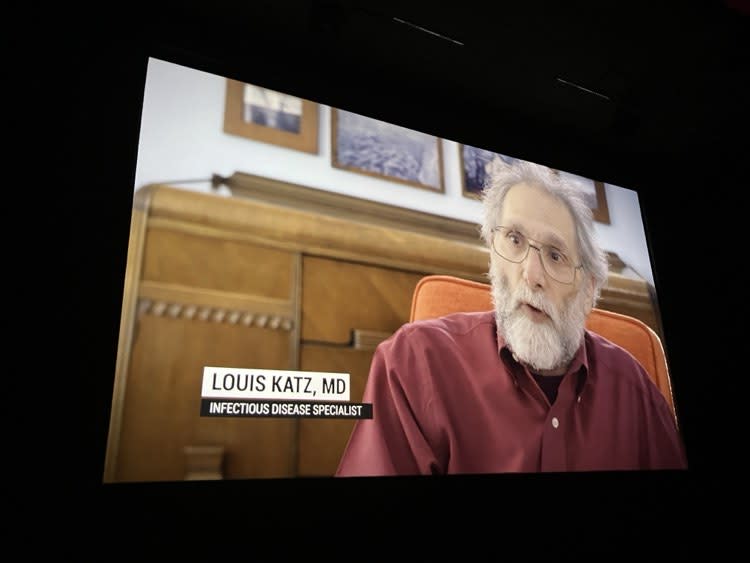
“Pride in Memory” talks about being gay growing up in the QC, discrimination and fights for rights, including people who were fired from the Arsenal in the mid-‘60s for being gay. That led to the formation of the Society Advocating Mutual Equality, which sent representatives to marches in Washington, D.C.
People were afraid their children would be taken away if they found out they were gay, and didn’t have protections in the workplace. There are still issues affecting the LGBTQ community ongoing today, especially in Republican-led states like Iowa.
“She left a major legacy, not only for the gay and lesbian community, but for her children, for me, for her church,” Jack Wiley says of Joyce in the film. They founded Quad Citians Affirming Diversity in 1990, after their son Jason came out as homosexual.
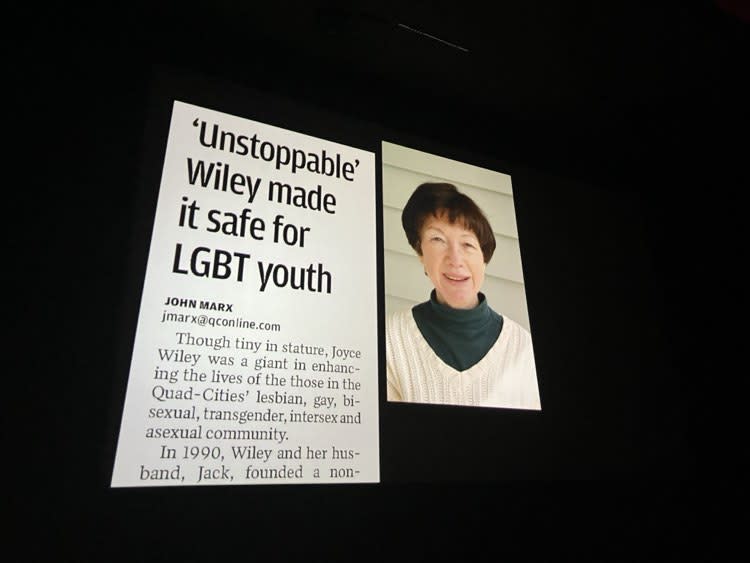
“Queer history is history, but we don’t know the histories that don’t get told,” Kiki Kosnick, Augustana College associate professor of French, who offers a queer theory course for the Women, Gender, and Sexuality Studies program, says in the film.
“When we feel tensions and things are hard in the world, I think it’s important to remember that isn’t because of us or from us. We are not the problem; the system and the culture is the problem,” she said.
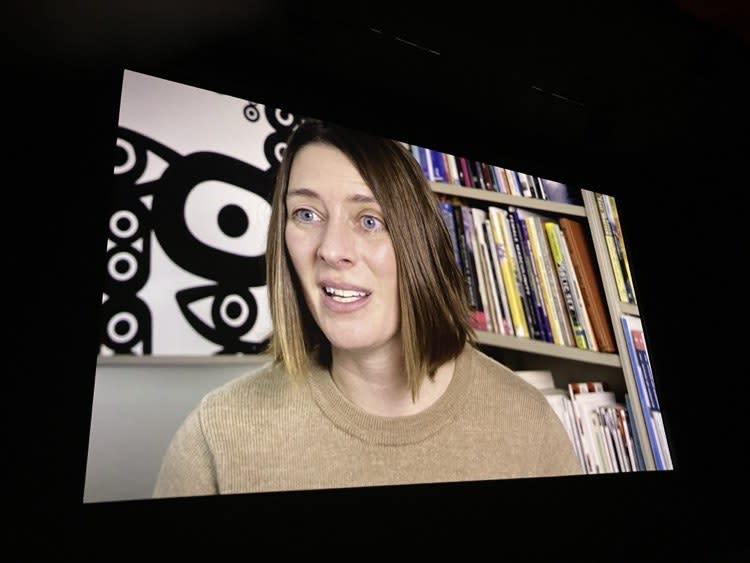
The documentary will discuss how LGBTQ protections have been hard won, but they are still vulnerable.
“The more I learn and study science, about creation, this incredibly interwoven world we live in, everything is connected,” Hendricks says in the film. “We are a lot more connected than we realize. When we put our stories out there, when we put ourselves out there, it makes the world a better place, because it does lead to more connections – it leads to more love.”
After seeing the Rundles’ film, he said: “I was so impressed. They are so good. Oh my God, it’s going to be fantastic. We’ve gotta get it funded. I’m hoping we lit a fire in some folks. It was awesome.”

QC Pride in Memory has about a $100,000 goal for the film. An application for a Iowa Humanities grant was turned down for the documentary.
“You know exactly why,” Hendricks said of the state’s hard-right stance, against LGBTQ rights.
Fourth Wall Films Rundles have produced over 20 award-winning documentary films. The “Our Story” documentary project has received a production grant from Illinois Humanities.
Hendricks is disgusted by major steps backward that Iowa has taken in trying to strip those rights. The film shows when Iowa legalized same-sex marriage, and how that was a big deal.
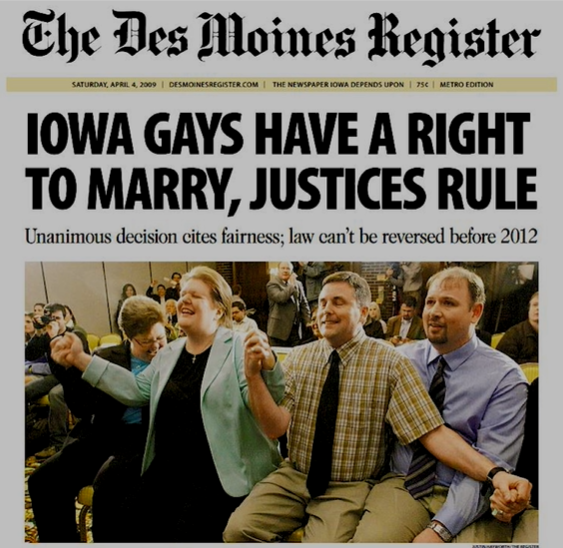
In April 2009, Iowa became just the third U.S. state to legalize same-sex marriage, after Massachusetts and Connecticut. Gay marriage was legalized nationwide in 2015 in a landmark Supreme Court ruling.
On Sunday night, the event featured a full screening of the 2012 documentary “How to Survive a Plague,” which shows grassroots AIDS activists (like ACT UP) and their fight for government funding and FDA approvals for AIDS treatments, as well as personal stories of those in the movement.
“It pisses me off, and I’m really glad that we chose that movie,” Hendricks said of Iowa on the state level.
“We have got to fight back,” he said, noting that the inspiring, moving “Plague” film lays out the model for how to take action and inspire people to get things done, like the planned QC documentary. “We’ve got a lot of work to do.”
Worldwide, AIDS killed 8.7 million people by 1995, and between 1981 and 2021, claimed over 700,000 U.S. lives. Today, over 1.2 million Americans live with HIV, the virus that causes AIDS.
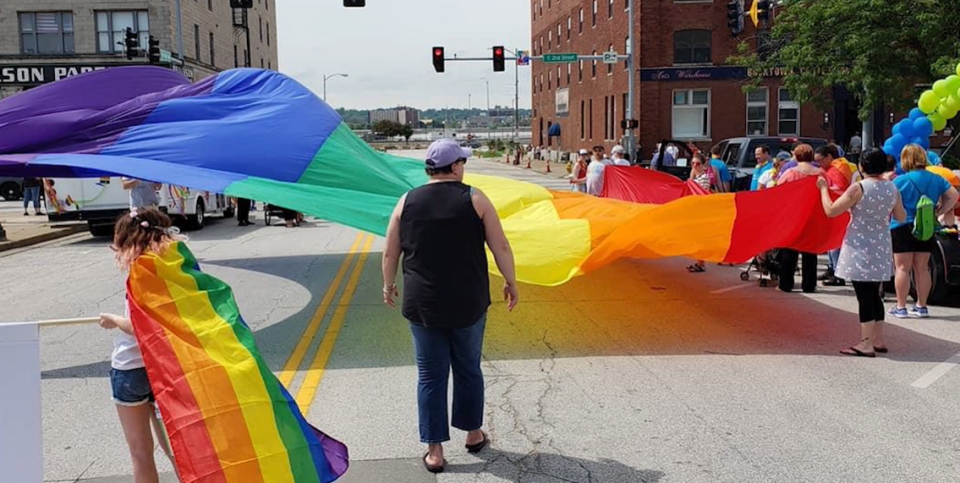
Established in 2021, QC Pride in Memory’s mission is to document, protect and preserve LGBTQ+ history in the greater QC area, and to educate the public regarding that history and its significance. To date, the nonprofit has conducted over 40 oral history video or audio interviews with key historical figures in the QC LGBTQ+ community, and collected printed materials and artifacts for a permanent archive at the Putnam Museum & Science Center.
QCPIM has collaborated with Augustana College students (in Queer Theory, Theater Arts, Filmmaking studies) along with Gender Studies and Geography faculty members. A portable historical panel display focused on LGBTQ+ history in the QC has been created.
To learn more and donate to the “Pride in Memory” film, click HERE.
For the latest news, weather, sports, and streaming video, head to WHBF - OurQuadCities.com.

